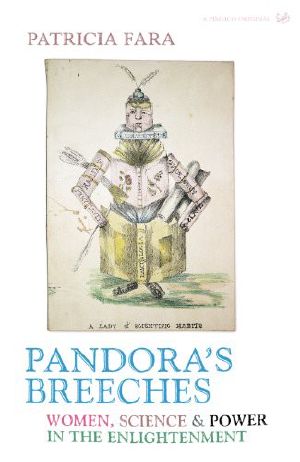Pandora's Breeches · Women,Science and Power in the Enlightenment

- Authors
- Fara, Patricia
- Publisher
- Vintage Digital
- Tags
- history , science , feminism
- Date
- 2004-02-25T00:00:00+00:00
- Size
- 1.24 MB
- Lang
- en
'Had God intended Women merely as a finer sort of cattle, he would not have made them reasonable.' Writing in 1673, Bathsua Makin was one of the first women to insist that girls should receive a scientific education. Despite the efforts of Makin and her successors, women were excluded from universities until the end of the nineteenth century, yet they found other ways to participate in scientific projects. Because these were being carried out inside private houses, rather than in universities or industrial laboratories, experiments often involved the whole family. As well as collaborating in this home-based research, women corresponded with internationally renowned scholars, hired tutors, and even published their own books. They played essential roles in work that was frequently attributed solely to their husbands, fathers or friends. Women, in this way, have not been written out of the history of science: they have never been written in. If mentioned at all, they appear in subservient roles as helpless admirers or menial assistants. Historians always decide which facts to emphasise, and they generally choose to depict a vision of scientific progress that ignores women's activities. By re-examining the lives of individuals, Pandora's Breeches explores how women of the 17th and 19th century engaged in science and contributed to its rapid growth. It sets out a new and compelling version of science's past.